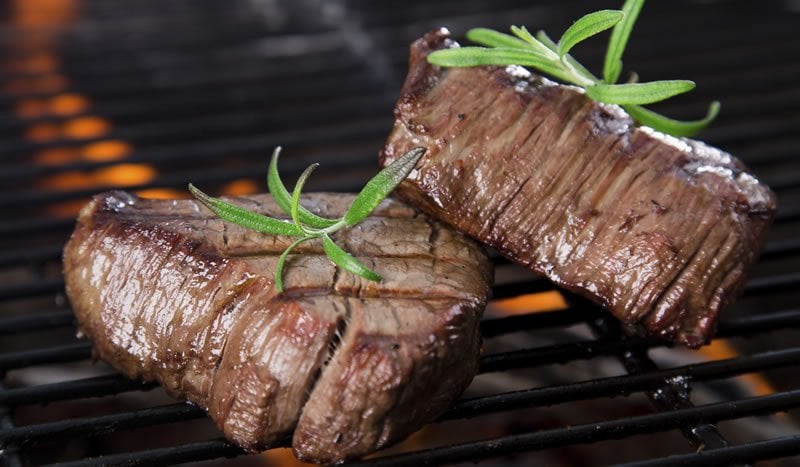Is Bison Healthier Than Beef?

Is bison healthier than beef?
In the meat aisles of many grocery stores nationwide, you’d sure think so. You’ll find many bison products that sound healthy.
A package of ground bison, for example, is touted as being “only 15% fat.”
“But don’t be fooled into thinking that 15% fat bison means that only 15% of the bison’s calories come from fat,” warns Kimberly Gomer, MS, RD, Director of Nutrition at the Pritikin Longevity Center.
“The fact is, 15% fat bison – or any meat for that matter – actually gets more than 50% of its calories from fat.”
How does the meat industry get away with this?
Percentage of fat by weight
The government allows the meat industry to measure fat as a percentage by weight. By weight, the fat in this ground bison doesn’t add up to much, just 15% of the total weight.

Learn More About Pritikin
Percentage of fat by calories

But never has there been a health guideline that has told Americans to watch fat by percentage of weight. Health experts have always directed us to watch fat by percentage of calories.
Looking at percentage of calories, more than 50% of the calories of a typical patty of ground bison come from fat. About 25% of its calories come from deadly saturated fat.
Fast Food Cheeseburger
In real-world terms, it means that one patty of ground bison typically has more saturated fat than some popular fast food cheeseburgers.
Genuinely Healthy Bison Choices
When shopping for bison, look for cuts that are no more than 5% fat by weight. (A 5% fat cut would usually be labeled as “95% lean.”)

Healthy Amounts
“And certainly, don’t eat bison every night,” adds Pritikin dietitian Kimberly Gomer. “Just because some cuts of bison are healthier than beef does not mean that bison is a free-for-all.”
Bison, even genuinely lean cuts like tenderloin, still contain some saturated fat.
Carnitine
What’s more, all red meat, including bison, has carnitine, which research now suspects leads to the body’s production of substances, called TMAO, that may contribute to heart disease.
High-Temperature Cooking
High temperature cooking of meat, whether bison or beef, is also problematic. “Searing red meat at high temperatures creates of lot of potentially worrisome compounds like heterocyclic aromatic hydrocarbons that contain known and suspected carcinogens,” points out Gomer.
Bison | Pritikin Guidelines
For optimal heart health, keep your consumption of bison (lean bison – no more than 5% fat by weight) to no more than 1 serving per week. And keep serving sizes small, no more than 4 ounces, which is about the size of deck of cards.
And preferably, cook your bison on low heat, like our Pritikin chefs’ thoroughly delicious Carrot-Stuffed Beef Tenderloin.
Bison is also nice served as a condiment, for example, in a veggie-rich stew or chili, or in Asian-style vegetable dishes.

Get All the Details of a Stay at the Pritikin Center in Your Inbox
Wellness Resort
Weight Loss Retreat
Health Spa